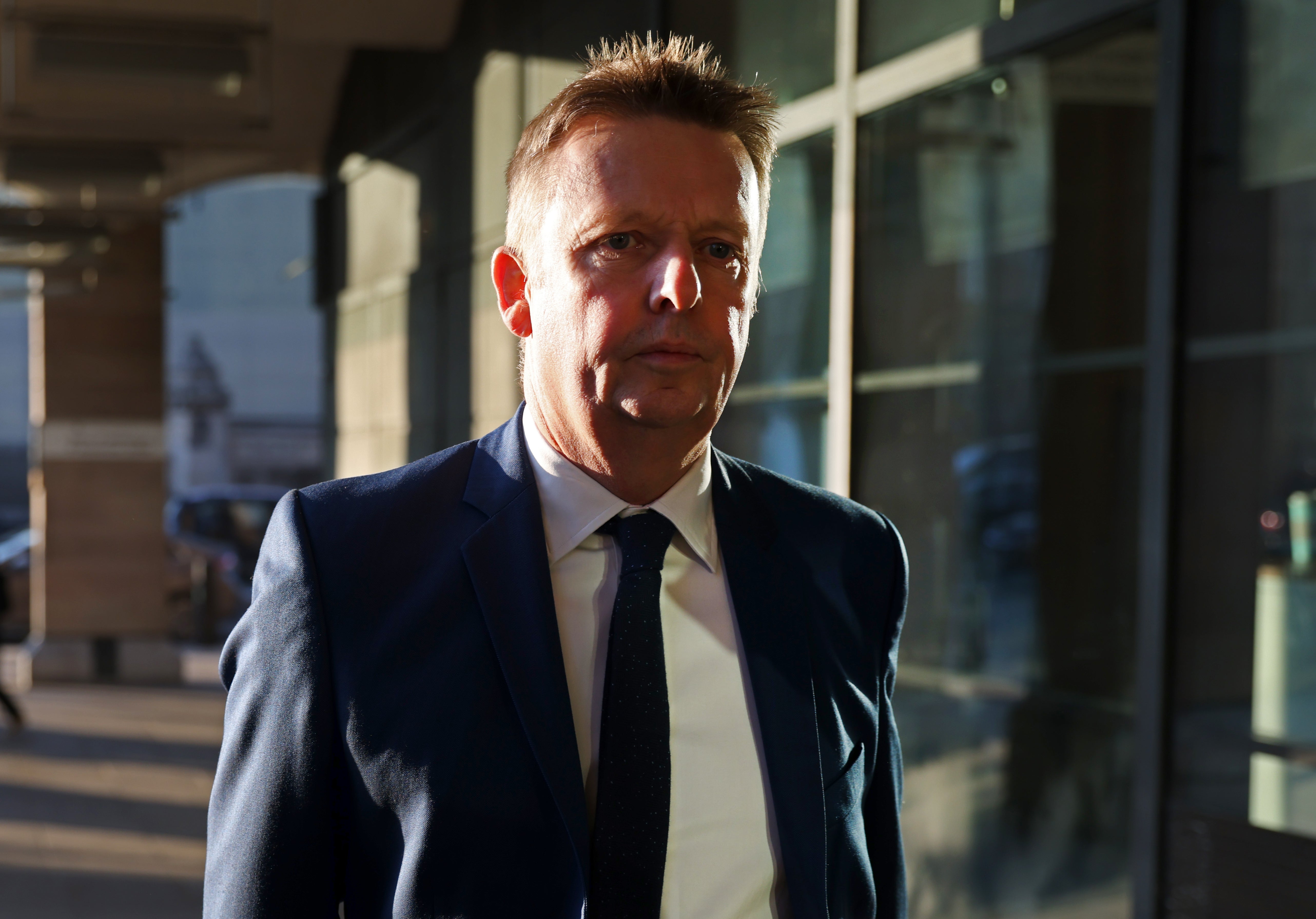Roger Hutton: I was stopped from removing Mark Arthur and Martyn Moxon at Yorkshire
Hutton resigned as Yorkshire chair earlier this month

Your support helps us to tell the story
From reproductive rights to climate change to Big Tech, The Independent is on the ground when the story is developing. Whether it's investigating the financials of Elon Musk's pro-Trump PAC or producing our latest documentary, 'The A Word', which shines a light on the American women fighting for reproductive rights, we know how important it is to parse out the facts from the messaging.
At such a critical moment in US history, we need reporters on the ground. Your donation allows us to keep sending journalists to speak to both sides of the story.
The Independent is trusted by Americans across the entire political spectrum. And unlike many other quality news outlets, we choose not to lock Americans out of our reporting and analysis with paywalls. We believe quality journalism should be available to everyone, paid for by those who can afford it.
Your support makes all the difference.Former Yorkshire chair Roger Hutton told MPs he wanted to remove two executive directors over their handling of Azeem Rafiq’s racism and bullying allegations but was blocked by the Colin Graves Trust.
Rafiq set out the full extent of the harrowing abuse he suffered during two spells at Yorkshire in an appearance before the Digital, Culture, Media and Sport committee on Tuesday.
Hutton resigned as chair on 5 November over the county’s handling of the investigation into Rafiq’s allegations and told the committee he felt chief executive Mark Arthur and director of cricket Martyn Moxon should be removed for their response to the report.
However, the trust of former chairman Graves – also the chair of the England and Wales Cricket Board (ECB) between 2015 and 2020 – vetoed that move, according to Hutton.
“I spoke to those trustees on personal occasions and at a couple of meetings and it was made clear to me that they were supportive of people in the club that I felt were partially to blame,” Hutton said.
“The club owes a substantial amount to the Colin Graves Trust. I imagine without that investment the club would have been in terrible difficulties. I do think on balance it is wrong that a major creditor at that level has the keys to decisions that the board should or shouldn’t make.”
Tom Harrison who served as ECB chief executive under Graves, admitted it was “a problem” if the trust was still exerting such an influence over the Yorkshire board, and said a governance review of the county would address it.
Hutton also repeated his claim that he asked the ECB to lead the investigation.
“This was a whistleblowing claim against Yorkshire County Cricket Club extending from 2007 to 2018 against the executive of the club, and [the ECB’s] response was to believe that Yorkshire should handle that when the claims were against the executive in place at the time, and for me that seemed wrong,” he said.
“I think they should have investigated and I think the investigation would have been far more satisfactory.”
Harrison said that former ECB chair Ian Watmore may have had discussions at that time on that basis but that the regulatory department was only asked to be a “partner” in the investigation – specifically to sit on the panel which assessed the investigators’ report.
The ECB said it declined because it wanted to be in a position to review the regulatory process in full at its completion.
“On regulatory matters, it is normal practice for first-class counties to take on investigations,” Harrison said.
“It is then for the regulator, in other words the ECB, to sit in judgement of that investigation and if need be run an additional investigation on top. Yorkshire were very clear that they wanted to run this investigation themselves.”
Hutton was asked whether, in his view, the club was institutionally racist.
“I have to observe that in the last few months there’s been a substantial amount of thoughtlessness and ignorance, a reluctance to apologise and a reluctance to see Azeem as the victim and a reluctance to put into place the recommendations,” he said.
“I fear that it falls within the definition [of institutional racism].”
Harrison stopped short of agreeing with Hutton and said he felt the handling of the report “indicates there are some certain issues of institutional racism” at Yorkshire.